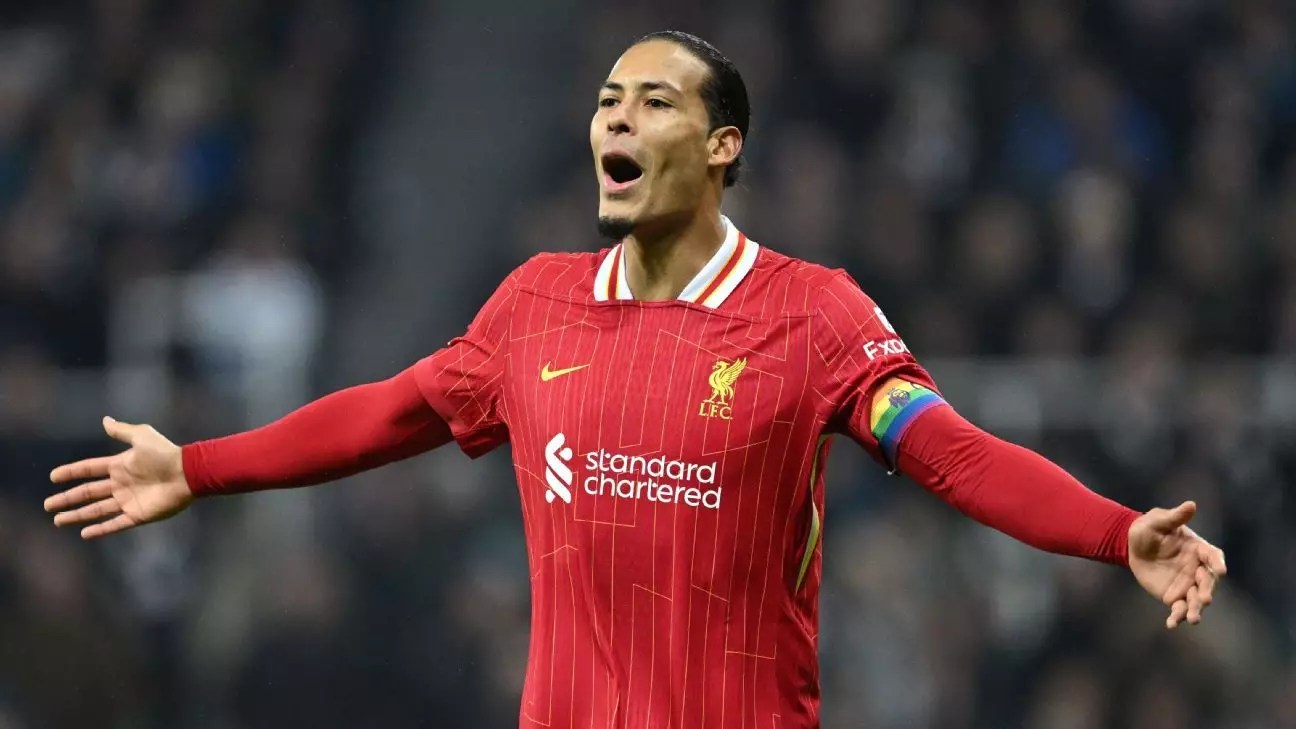In the world of professional football, the narrative increasingly revolves around player fatigue and overexertion. The CIES Football Observatory’s recent report sheds light on this pressing issue by revealing the players who have logged the most minutes on the pitch throughout the calendar year. Leading the charge is Barcelona’s Jules Koundé, who accumulated a staggering 5,872 minutes of playtime for both club and country. This places him ahead of notable names like Liverpool’s Virgil van Dijk and Real Madrid’s Federico Valverde, further amplifying concerns about the physical toll on players in modern football.
Koundé’s high usage reflects a broader trend, where top-tier athletes are expected to perform consistently despite an increasingly congested schedule. Colombian international Jhon Arias, representing Fluminense, follows closely with 5,599 minutes. Not to be overlooked, Valverde’s 5,573 minutes and Van Dijk’s 5,523 minutes illustrate the constant demand for elite performance. Other key players like Arsenal’s William Saliba and Granit Xhaka from Bayer Leverkusen contribute to this list, stressing the growing reliance on a select few individuals.
A closer examination of the usage statistics provided by CIES reveals that domestic competitions dominate the landscape, accounting for a substantial 73.2% of minutes played among the top 100 players. Meanwhile, intercontinental club tournaments and national team obligations comprise 15.1% and 13.4%, respectively. This imbalance in player workload is raising eyebrows, especially as many are calling for a reevaluation of how tournaments are structured to accommodate player health and well-being.
The rising anxiety regarding player fatigue is echoed in the words of Manchester City’s Rodri, who recently voiced concerns over excessive match schedules. His assertion that players might consider striking to draw attention to these issues is not merely hyperbole; it highlights the waning patience among athletes who feel their voices are routinely drowned out by financial and commercial interests in the sport. Koundé himself echoed this sentiment in a press conference, emphasizing the negligence of decision-makers regarding player welfare.
The situation has prompted the global players’ union, FIFPro, to take a stand by filing an antitrust complaint against FIFA, contesting the governing body’s dual role as both tournament organizer and regulator. This action underscores a critical dilemma within the sport: the necessity of balanced schedules that promote player health versus the relentless pursuit of profits by club and tournament organizers.
In retrospect, the challenges posed by excessive match fixtures necessitate urgent dialogue among stakeholders in the football ecosystem. The voices of players like Koundé and Rodri must be amplified, as they are the ones bearing the brunt of a system that seems increasingly indifferent to their physical and mental health. For the longevity of the sport and the well-being of its athletes, it is imperative that we move promptly toward a model that prioitizes sustainable practices.


Leave a Reply